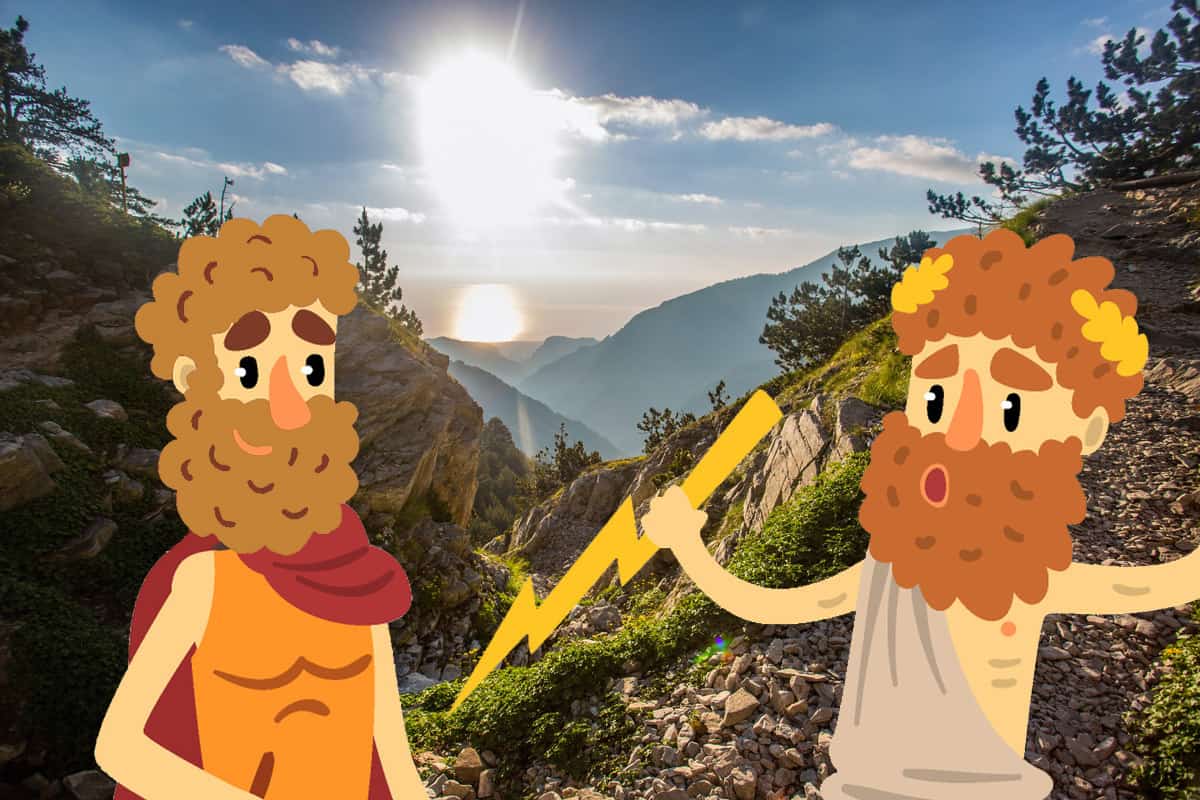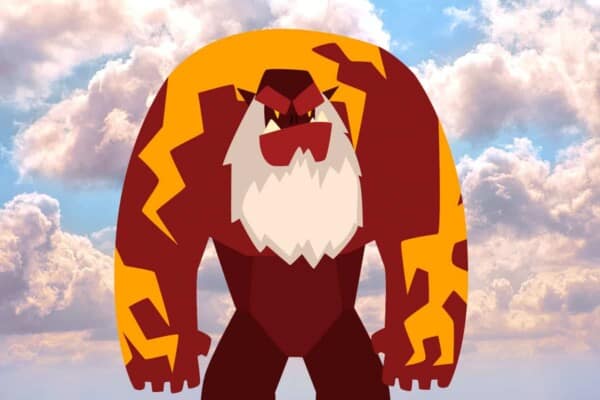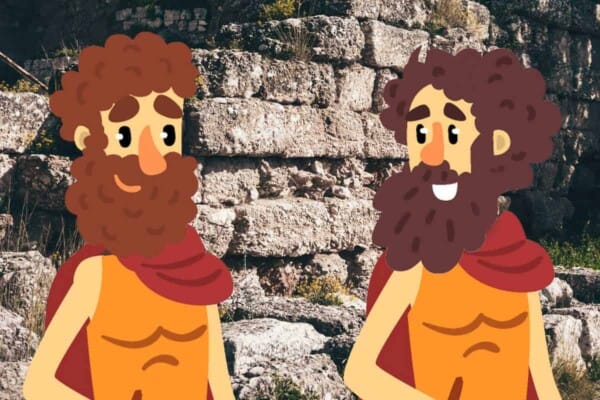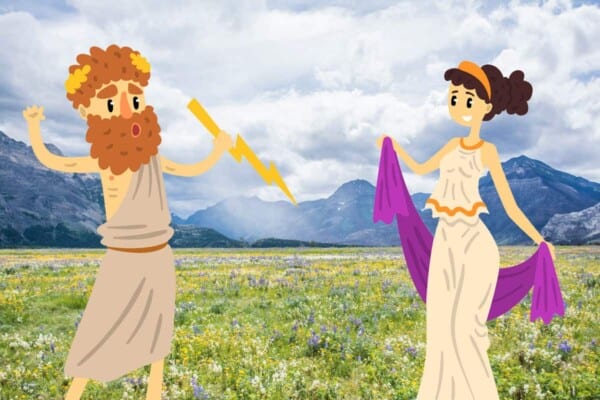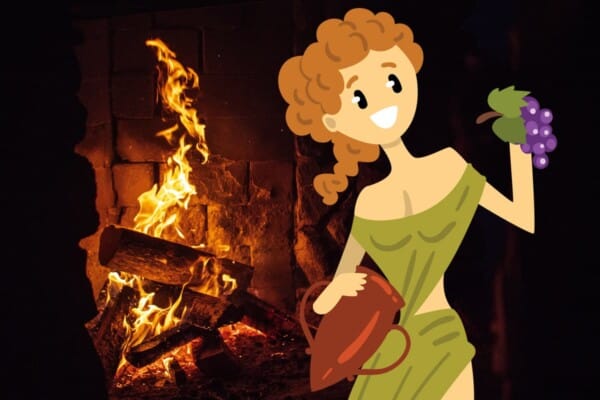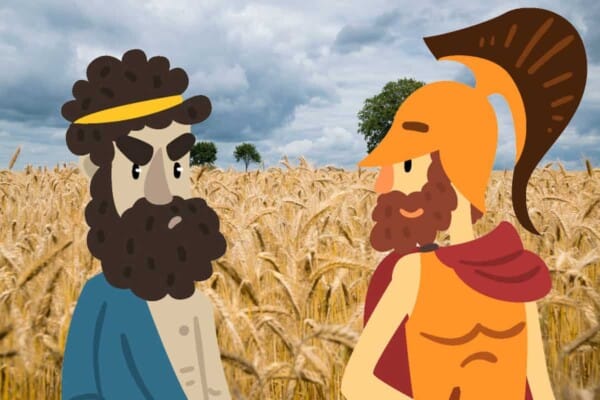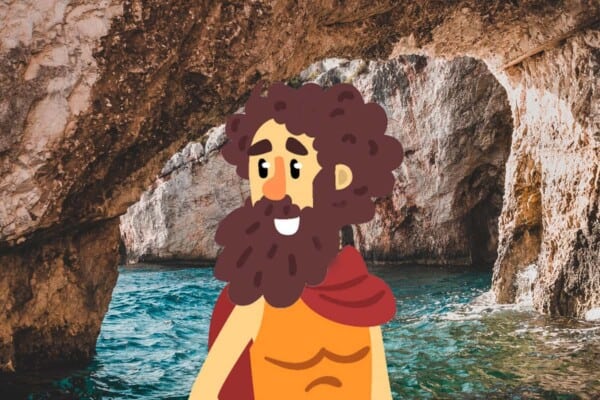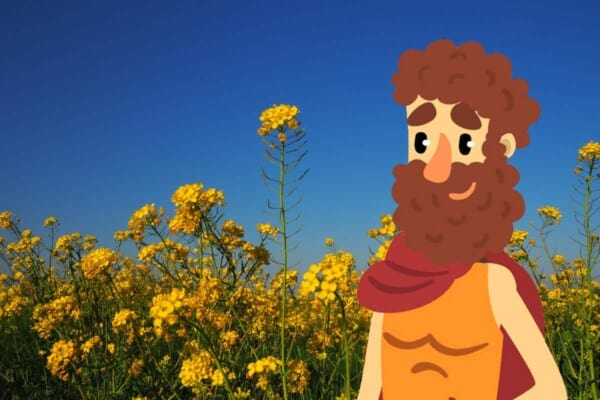Zeus and Hercules are two of the most famous figures from Greek myth, due in no small part to their role in the Disney film Hercules. But how did this father and son compare?
As a demigod, Hercules shared many attributes – especially his strength and power – with his divine father. However, his human half also greatly affected him and was the source of difference between them. Hercules sought romance while Zeus lacked faithfulness, and Hercules was famous due to service rather than authority like his father.Zeus was born a god while Hercules earned it. However, there is also a similarity there; Zeus only gained power after overthrowing the Titans, much as Hercules proved himself through his heroics during his first life.
Unlike Zeus, though, Hercules always repented when his deeds weren’t morally sound!
What’s the difference between Zeus and Hercules?
Family
Zeus
Zeus was the youngest son born to the Titans Rhea and Cronus and the only god who wasn’t swallowed by Cronus. His siblings were Hestia, Hera, Demeter, Hades, and Poseidon, as well as Chiron. He was married to his sister, Hera, but he had countless other lovers, with whom he sired many children. Zeus was married six times before Hera, one of which was Metis, that he swallowed whole.
Some of his children were the twin gods Apollo and Artemis, the goddess Athena, the gods Ares, Hermes, and Dionysus, Persephone, Hercules, and infinite others.
Hercules
Hercules was the son of Zeus and Alcmene. His mother was married to Amphitryon. Through Zeus he had infinite siblings, including Olympians Apollo, Artemis, Athena, Ares, Hermes, and Dionysus, as well as Persephone. He was also both a half-brother and great-grandson of the hero Perseus. He had two mortal half-siblings, Laonome and Iphicles, his heteropaternal twin on his mother’s side.
Hercules married four times, most of which ended tragically. Megara, Omphale, Deianira, and Hebe were his wives, but he also took several lovers, both male and female.
He also had several children that are collectively known as the Heracleidae.
Major Myths and Roles
Zeus
Zeus was the king of the gods; however, most of his myths revolve around his affairs. Following the Titanomachy, he drew the lot to rule the realm of the sky. He also was the god of thunder and came to be known as the father of the Gods even though he was the youngest of his siblings. Other notable themes in his myths are the size of his powers and the punishments he gave to mortals and gods alike if they displeased him.
Cronus, his father, had already swallowed his elder siblings, so when Zeus was born, Rhea, his mother, hid him. After Zeus grew up, he forced Cronus to regurgitate his brothers and sisters and then waged war against the Titans. The Olympian era began after the victory of the gods.
Zeus had countless children, but inarguably his favorite was Athena. She was born out of his head after he swallowed Metis, her mother.
Zeus was notorious for his love affairs. He disregarded everything if he desired a woman; marital status or interest didn’t matter (!) at all to him. He sired very many children in his humanoid form or in weirder shapes through his various affairs, like that of golden rain, an ant, a swan, and an eagle. Once, he even took the form of his daughter Artemis to seduce one of her friends, Callisto, who had sworn to abstinence.
Hera, his wife, was naturally unhappy with this situation, and there were many times that she punished and tortured women with whom Zeus had laid, despite whether they wanted him or not. When Hera found out that Semele had gotten pregnant by Zeus, she tricked the human into asking Zeus to show her his natural form. Zeus disagreed at first but eventually relented, killing Semele instantly. Zeus then sewed the fetus in his thigh until it was ready to be born, as Dionysus.
Zeus was also known for his temper. His fury was often expressed by lightning bolts, and he was notorious with his punishments against those who had angered him or offended him in any way. Pandora, who accidentally released all evil into the world, was actually made as a punishment for her husband.
He didn’t even shy away from punishing other gods, most notably his son Apollo, whom he had turned into a mortal several times.
Hercules
Hercules was first named Alcides by his mortal parents. His name was changed by Zeus in a (failed!) effort to placate Hera, who hated Hercules and had tried to assassinate him several times. When Hercules was born, Athena (his half-sister) carried him to Olympus. Hera, not recognizing him, decided to nurse him out of pity. The baby, though, latched on too hard, causing pain to the goddess, who pushed him away. The spilled breast milk became the milky way in the sky.
Athena brought the baby back to his mortal parents to be raised by them. Hera, still angry, sent snakes to kill the baby. Still, after having drunk the goddess’s milk, the baby had received supernatural strength that helped him strangle the serpents with his bare hands. When Hercules was discovered playing with the dead snakes in his cot, his stepfather, Amphitryon, asked for the seer Tiresias, who prophesized that the child would slay numerous monsters.
He wed Megara and had several children with her; however, Hera sent him a fit of lunacy which ended with him killing his children. It is unclear whether he also killed Megara. When Hercules came to and saw what he had done, he wanted to atone for it, so he undertook the twelve, allegedly impossible, labors. Some of these labors slaying the Nemean Lion, and the Lernaean Hydra, stealing the golden apples from the Hesperides, and Cerberus from the underworld.
When he finished with the labors, Hercules took part in a contest to win Iole’s hand. Her father, though, knew that Hercules had killed his first wife and children, so he didn’t allow him to marry Iole even though he won the contest. Iole’s brother Iphitos pleaded with his father on behalf of Hercules but to no avail. However, Hera sent him into a lunacy fit once more, and he ended up killing Iphitos.
After that, as punishment, he was indentured to Omphale, who ended up freeing him and marrying him. Hercules later decided to court Deianira, whom he ended up marrying.
The centaur Nessus attempted to rape Deianira, but Hercules saved her by shooting the centaur with poisoned arrows. Nessus, while dying, lied to Deianira and told her that if she collected his blood and soaked Hercules’s cloak with it, it would act as a love charm. Deianira collected the blood and save it.
Through his marriage to Deianira, Hercules now had control of an army, so he decided to exact revenge upon Iole’s father, Eurytus. He ended up killing him, and his sons for not giving Iole to him as his prize; Iole jumped off the high city wall to escape, but she was saved by her dress that acted as a parachute, helping her land safely. Hercules then abducted Iole and took her back to his home. Deianira was displeased with the situation even though she pretended she didn’t mind.
Deianira remembered the centaur’s lie. Fearing she would lose Hercules to Iole, she followed Nessus’s instructions and sent the cloak to her husband. Hercules got poisoned upon donning the cloak and died. Deianira, upon realizing her mistake, killed herself.
Before his death, Hercules had also joined the Argonauts, along with his lover Hylas. He was also the one who freed Prometheus from his cruel punishment and killed numerous monsters, as prophesized.
After Hercules died, Zeus brought him to Olympus and turned him into a full god. He later married Hebe.
Final Thoughts
Zeus and Hercules were both powerful but differed in motivations. Though Hercules loved tragically, he was always a romantic, while Zeus could never stay loyal to his wife or lovers.
Hercules also worked hard under the service of others performing his best work. Zeus’s power focused on sovereignty.
The two are similar, though, in that they fathered many children and possessed great power. Perhaps that’s why they’re both so remembered!

